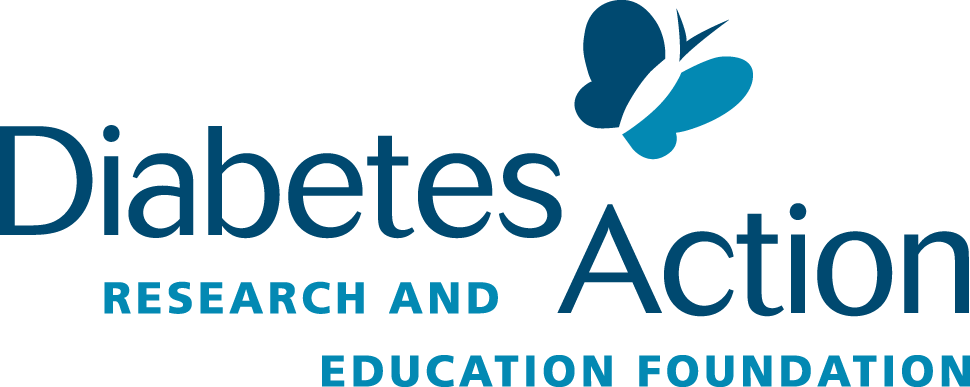
past Research
2010
Home > Research > Past Research > 2010
Cure for Type 1 Diabetes
A PROGRAM FOR THE CURE OF TYPE 1 DIABETES USING A GENERIC DRUG: PHASE II
Researcher
Denise L. Faustman, MD, PhD., Associate Professor
Harvard Medical School and Director Immunobiology Laboratory
Massachusetts General Hospital
Charlestown, MA
Purpose
Dr. Faustman’s lab is currently conducting an FDA-approved Phase I human clinical trial using a generic drug, Bacillus Calmette-Guerin (BCG), in people with longstanding type 1 diabetes. The goal of this trial is to use the drug to kill only the “bad” (autoreactive) T cells so that the human pancreas might spontaneously regenerate. In early 2010, Dr. Faustman expects to complete the Phase I human clinical trial. If no serious side effects from this drug are discovered which is unlikely, since this is a drug that has been used in humans for 80+ years they will then move to Phase II human testing, which will involve more patients and be the next step in seeing if this inexpensive generic is safe and effective in human type 1 diabetes. Based on Dr. Faustman’s lab research, they hope to show that BCG will eliminate a population of disease-causing cells in type I diabetes, without harming healthy cells. In 2001, Dr. Faustman’s laboratory successfully used a similar approach to cure end-stage diabetes in mice. This is the first trial to translate those findings to humans. A project supply grant from Diabetes Action will support the lab in conducting the next phase of necessary human testing.
COMPLEMENTARY / NUTRITION RESEARCH
COMPARATIVE EFFECTIVENESS TRIAL OF HIGH-QUALITY VITAMIN D3 NUTRITIONAL SUPPLEMENTS TO REPLETE SERUM VITAMIN D
Researcher
Ryan Bradley, ND, MPH
Research Asst. Professor Dept. of Naturopathic Medicine
Bastyr University
Kenmore, WA
Purpose
The importance of vitamin D (VitD) in the prevention and treatment of diabetes and cardiovascular disease has gained increased attention in recent years. There is a need to determine what forms of VitD may be supplemented to correct VitD insufficiency and to elucidate possible mechanisms by which VitD sufficiency may decrease risk for developing diabetes. This randomized, clinical trial (RCT) will compare the effects of three different VitD supplements to correct VitD insufficiency, and will determine the effects of VitD repletion on the expression of the Klotho protein, which is tightly involved in VitD regulation, insulin-like signaling and resistance to oxidative stress. The primary outcome measures will be comparisons of serum 25-hydroxycholecalciferol (25-OHD) concentration and Klotho protein expression between the treatment arms following administration of one of the three VitD preparations for 12-weeks, at a dose of 10,000 IU VitD per day.
ROLE OF THE LIGANDED VITAMIN D RECEPTOR IN THE PANCREATIC BETA CELL
Researcher
David G. Gardner, M.D.
Professor of Medicine
UCSF
San Francisco, CA
Purpose
1,25 dihydroxyvitamin D3 (VD3) is a secosteroid which binds to and activates the vitamin D receptor (VDR). Traditionally, VD3 target organs have included gut and bone. However, a number or recent studies have expanded the spectrum of VD3 targets to include the heart, immune system and, possibly, pancreatic beta cells. The latter finding is noteworthy in view of the growing consensus that we are in the midst of a worldwide epidemic of vitamin D deficiency. VDR is known to be present in beta cells; however, previous studies that showed positive effects of VD3 on insulin secretion may have been confounded by independent effects of VD3 linked to increased extracellular calcium levels. We will approach the question of possible linkage between VD3 action within the beta cell and insulin secretion using a mouse that we generated that allows us to delete the VDR selectively in beta cells without perturbing extracellular calcium levels.
EFFECTS OF TREATING VITAMIN D DEFICIENCY ON POORLY CONTROLLED DIABETES
Researcher
Dr. Lo and Dr. Lansang
Margaret C. Lo, M.D.
Clinical Assistant Professor
University of Florida, College of Medicine
Gainesville, Florida
Purpose
Vitamin D supplementation has recently gained considerable interest as possibly preventive in diabetes onset and progression. Several observational studies have demonstrated an association with Vitamin D deficiency and increased incidence of metabolic syndrome, glucose intolerance, and diabetes mellitus. It has also been linked to diabetic complications including neuropathy and microalbuminuria. Yet despite these studies, the impact of Vitamin D deficiency on glucose control in poorly controlled diabetes is not well known. Hence, this pilot study will investigate the effect of Vitamin D supplementation in 1(improving glucose control and 2) in improving microalbuminuria in patients with poorly controlled diabetes and concurrent Vitamin D deficiency. If found successful, this study may yield larger interventional studies and possible development of new guidelines for Vitamin D supplementation as an innovative, cost-effective therapy to treat and delay the progression of diabetes, especially in the poorly controlled who have the highest risk for complications.
TOWARD A MOLECULAR BASIS FOR DIETARY CONTROL OF TYPE II DIABETES
Researcher
Kent S. Gates, Ph.D.
Distinguished Professor of Chemistry
The University of Missouri-Columbia
Columbia, MO
Purpose
Type 2 diabetes presents a vast and growing world health problem. This disease is characterized by impaired cellular responses to the insulin hormone. The work described in this proposal explores the possibility that naturally occurring chemicals (phytochemicals) found in vegetables and spices have the power to restore insulin sensitivity, and thus normal glucose metabolism, in individuals with type 2 diabetes. In the proposed work, we will identify and characterize specific dietary phytochemicals that inhibit the critical negative regulator of insulin signaling, an enzyme known as PTBIB. The results will lay a foundation for improved dietary control of type 2 diabetes. Specifically, identification of dietary phytochemicals that restore insulin sensitivity will make it possible to design anti-diabetic diets that are rich in the most beneficial phytochemicals.
IN VIVO ANALYSIS OF THE ROLE OF OMEGA-3 FATTY ACIDS IN REGULATION OF GPR120 EXPRESSION
Researcher
Nader H. Moniri, Ph.D.
Assistant Professor
Mercer University-College of Pharmacy & Health Sciences
Atlanta, GA
Purpose
Recent evidence indicates that omega-3 fatty acids, such as those found in fish oils and flax seed oil, are beneficial for stimulating insulin secretion. While the mechanism by which these fatty acids promote the release of insulin are poorly understood, a recently discovered family of cell surface receptors, which recognize fatty acids and regulate insulin secretion, have provided additional targets for nutritional and pharmaceutical control of blood glucose. One of these receptors, GPR120, recognizes the commonly known unsaturated omega-3 fatty acids alpha-linolenic acid (ALA), eicosapentaenoic acid (EPA) and docosahexaenoic acid (DHA). The goal of this project is to characterize the effects that these fatty acids have on the expression levels of GPR120 mediated insulin secretion, in order to forecast which omega-3 fatty acids would be most beneficial as a complementary therapy to traditional drug regimens.
education
AUBURN UNIVERSITY- DIABETES RESEARCH DAY 2010
Researcher
Robert L. Judd, Ph.D.
Chair, Boshell Diabetes and Metabolic Diseases Research Program
Auburn University, AL
Purpose
The Boshell Diabetes and Metabolic Diseases Research Program at Auburn University is dedicated to improving the lives of all people with diabetes through world-class basic and clinical scientific investigation in diabetes and other metabolic diseases. Currently, 32 faculty members representing six colleges at Auburn are members of the Boshell Research Program. On March 5, 2010 this program hosted its 3rd Annual Diabetes Research Day. This event brought together experts from around the U.S. to present current topicfs on the etiology and treatment of both Type 1 and Type 2 diabetes. It provided an excellent learning environment for all investigators, but especially junior investigators. With the greater attendance over past conferences, this conference became a premier diabetes conference in the Southeast with attendees from numerous academic institutions including the University of Alabama at Birmingham, Vanderbilt University, Univ. of Georgia, Univ. of Mississippi, Emory University, Tuskegee University and East Tennessee State University.
gene research
SEARCH FOR GENES INFLUENCING RENAL DYSFUNCTION IN TYPE 2 DIABETES
Researcher
Farook Thameem, Ph.D.
Assistant Professor of Medicine
The Univ. of Texas Health Science Center
San Antonio, Texas
Purpose
Diabetic kidney disease, known as diabetic nephropathy (DN), is a serious microvascular complication of both type 1 and type 2 diabetes. Elevated urinary albumin excretion and decreased glomerular filtration rate (GFR) are risk factors for cardiovascular morbidity and mortality and progression to kidney failure in individuals with diabetes mellitus. Diabetes-associated kidney failure accounts for 40% of cases in the U.S. In addition to its morbidity and mortality, DN extracts a tremendous cost from the health-care economy. Prevention and better treatment of diabetic kidney disease should be a high priority for both the health-care system and society at large. The pathogenesis of DN is multifactorial. Familial clustering of DN indicates that genetic factors play a major role in its pathogenesis, but the genes involved in susceptibility to DN have yet to be identified. The objectives and long-term goal of this project are to detect, map, and characterize polymorphic gene(s) that influence susceptibility to renal dysfunction in type 2 diabetes. Identification of the gene/genetic mutation(s) influencing susceptibility to diabetic renal failure has preventive and therapeutic implications.
RESCUE HUMAN MELANOCORTIN 4 RECEPTOR DYSFUNCTION BY NOVEL AGONIST
Researcher
Yingkui Yang, M.D., Ph.D.
Assistant Professor
University of Alabama at Birmingham
Birmingham, AL
Purpose
Obesity is a major risk factor for type 2 diabetes and patients with mutations of hMC4R have early-onset severe obesity. The studies in vitro have identified that the hMCAR polymorphisms identified in obesity have defects at receptor expression and function. Expressing hMC4R alleles identified in obesity into mouse will increase our understanding of the role of hMC4R mouse will also provide us an animal model to test our MC4R selective peptide and small molecule agonists to alleviate or correct the hMC4R defect.
IDENTIFICATION OF REGULATORS OF ADIPONECTIN SECRETION AS POTENTIAL ANTI-DIABETIC DRUG TARGETS
Researcher
Sujoy Ghosh, Ph.D.
Senior Research Investigator
Biomedical/Biotechnology Research Institute
North Carolina Central University
Durham, North Carolina
Purpose
The continuing rise in the prevalence and incidence of type 2 diabetes makes it imperative to improve clinical care and identify novel therapeutic avenues to increase treatment options for patients. Type 2 diabetes is closely associated with an underlying abnormality known as ‘insulin-resistance’ where the body is unable to utilize insulin appropriately. Fat cells secrete a protein known as adiponectin that can restore the body’s ability to utilize insulin and thereby ameliorate the abnormalities associated with diabetes. Adiponectin levels are reduced in type 2 diabetics. We propose to use a genomic tool known as RNA interference to identify the proteins in the fat cells that control adiponectin secretion. After identifying these proteins, our next step will be to modulate some of their activity chemically such that it leads to an increase in adiponectin secretion in type 2 diabetics. This would open up an opportunity for developing new anti-diabetic drugs.
exercise RESEARCH
EXERCISE AND INSULIN STIMULATED VASODILATION IN TYPE 2 DIABETES
Researcher
John P. Thyfault, PH.D.
Assistant Professor
University of Missouri
Columbia, MO
Purpose
Insulin increases blood flow and vasodilation (widening) in vessels acting to increase the delivery of blood sugar to tissues following a meal, however, in type 2 diabetes blood vessels are insulin resistant and these processes are impaired contributing to elevated blood sugar. In this project we will perform translational studies in both humans and rodents who have type 2 diabetes to determine the mechanism(s) by which vascular insulin resistance occurs and if exercise is an effective treatment for reversing the condition. Rats with type 2 diabetes will undergo exercise training followed by the study of insulin stimulated responses in small vessels isolated from skeletal muscle. Human subjects with type 2 diabetes will undergo acute exercise training to determine if and how insulin stimulated blood flow and vascular function is impacted with exercise training.
